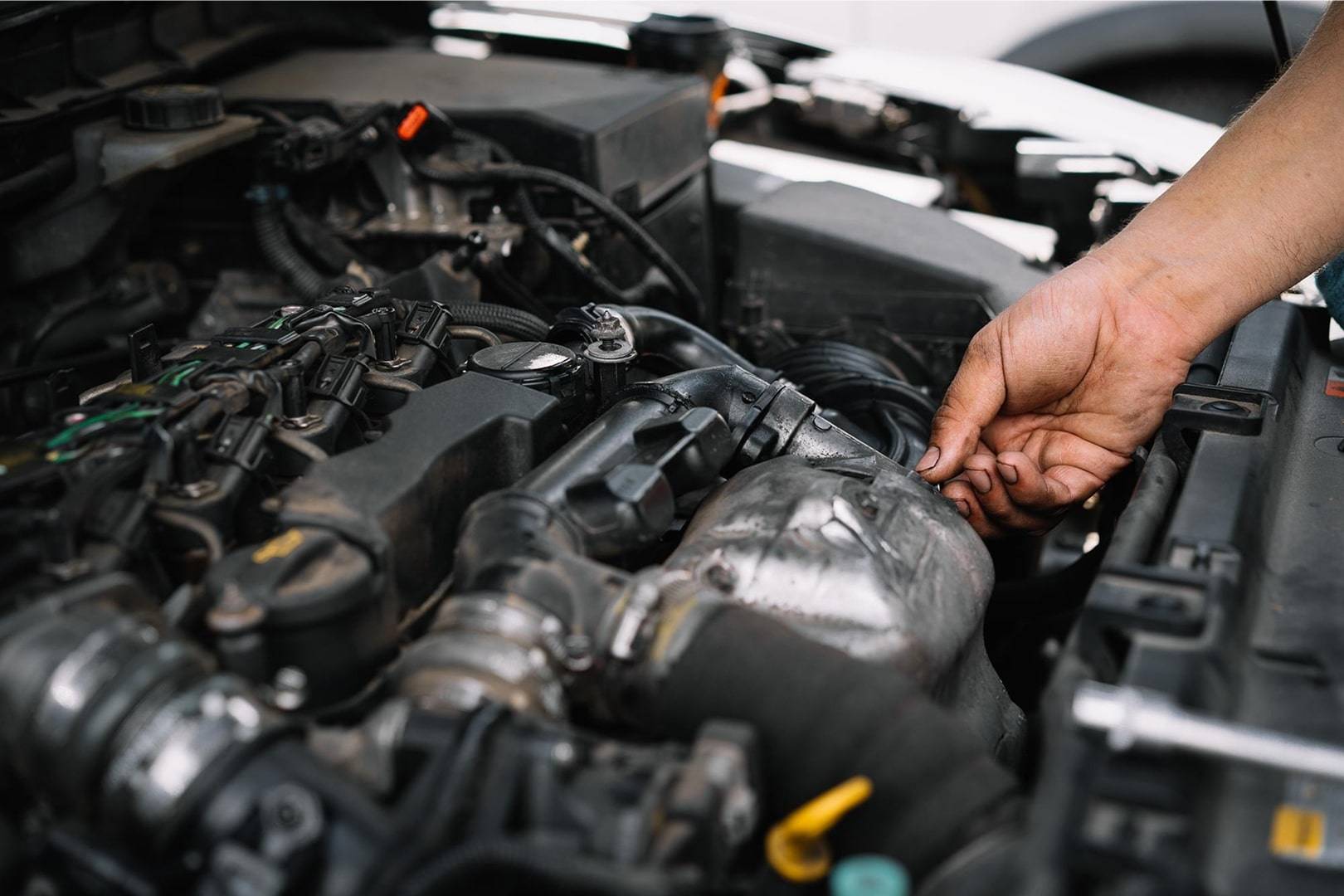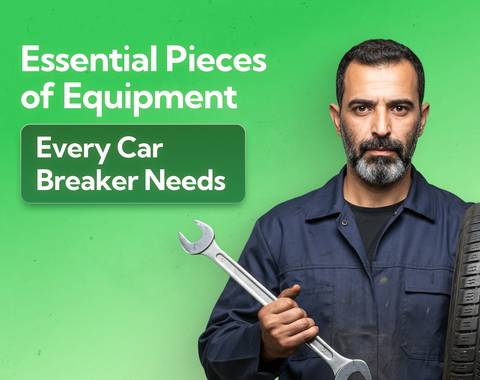Guide to Extended Car Warranties
When you're getting a new or used car, adding an extended car warranty can save you thousands. Or, it can be completely worthless. It all depends on what’s covered, how it’s worded and who’s backing it. In this guide, we break down how extended warranties work, what to look out for and when they’re actually worth paying for.
Last updated: 10th October, 2025

Anthony Sharkey is COO at New Reg Limited (Car.co.uk, Trader.co.uk, Garage.co.uk), driving innovation in vehicle recycling, logistics, and customer experience.

Listen to this story
Once your manufacturer warranty runs out, you’re on your own for repair costs unless you buy extended cover. But the conditions of such extensions vary wildly from provider to provider. Some policies cover major engine failures. Others exclude anything vaguely expensive and bury you in technicalities.
In this guide, we’ll help you cut through the confusion. You’ll learn how extended car warranties work, what they tend to cover (and exclude), and how to avoid paying for something you don’t actually need.
Whether you're buying from a dealership or a third-party provider, we’ll help you spot the difference between solid protection and empty promises.
What's in this article
What do extended warranties cover?
Car warranties vary on the specifics of what they cover. Most warranties cover you for mechanical breakdowns and electrical failures. Parts covered will usually include electrical components, steering, ignition, fuel systems, cooling systems, transmission, clutches, gearbox, brakes, and suspension. Parts will normally be replaced or could be repaired.
Normal wear and tear is usually not included, though some warranties will cover some wear and tear. These warranties have specific definitions for wear and tear, so you need to understand the level of wear and tear covered.
Items subject to normal wear and tear that are not usually be covered by a standard extended car warranty include tyres, bulbs, brake pads, and batteries. Faults classed as cosmetic damage, such as bodywork scratches and dents, will probably not be covered either.
An extended car warranty will not pay for items covered by car insurance. Damaged windscreens, window glass and damage caused by accidents need to be protected by car insurance. If your car is stolen then this will be covered by a car insurance policy. If the thief damages the car, then repairs will be paid for through the car insurance.
Most warranties have a mileage limit. If you exceed this, the warranty will be invalid, so buy a warranty suitable for the number of miles you expect to cover each year.
The warranty will probably have conditions with which you must comply, such as keeping to a regular major and minor service schedule and performing routine maintenance. There may be restrictions on where you have the car serviced. For example, if you do your own car servicing, this may go against the warranty conditions, or the warranty may insist on you using a particular car dealership service centre.
If the car repairs are the result of driver negligence, the warranty may reject a repair claim.
If the car is modified, this could invalidate the warranty. When modifying a car, the warranty company should be notified as the warranty conditions may have to be adjusted. There could be a fee for this.
When choosing an extended car warranty, look out for any restrictions. If a new part is needed, the warranty may not pay for the part because it may increase the value of the car. The warranty may only pay for fitting the part.
The warranty could have a vehicle age mileage limit, which, when reached, makes the warranty invalid.
There may be a claim limit, representing the maximum amount the warranty will pay out for a claim. Some warranties, like car insurance, have excess fees, which are an amount you must contribute to the cost of any repair.
Some warranty providers have a list of approved garages you must use for repairs. Warranties that let you choose any garage may have a maximum labour charge they will pay.
If you take out a warranty on a car that has a pre-existing fault, this may not be covered. Some warranties have a period of up to 90 days before a claim can be made.
If you ignore a dashboard warning light for a period before you get the fault fixed, you may not get paid for repairs.
All in all, it’s important to be aware of what is and what isn’t covered by a vehicle warranty before purchasing. Don’t automatically settle on the cheapest – it can be worth paying extra so that more items are covered.

Which extended car warranty is the best?
There are several car warranty companies available, and the best suited will depend on your own needs and circumstances. There are review sites that rank extended car warranties, though they don’t all agree on which one is the best.
You can buy an extended car warranty from the manufacturer, which either increases the length of time the original car warranty lasts or extends the number of miles you can drive and still be covered by a warranty.
If you buy a used car from a dealer, they will probably offer to sell you a car warranty. A car manufacturer's warranty, or one offered by a used car dealer, may not be the best deal, however. Car.co.uk can help you find the best extended car warranty deals, and you can compare what different car warranties have to offer and how much they cost.
When you compare warranty prices, make sure that you are comparing like for like. A cheaper warranty may have restricted cover. Find warranties that provide the level of cover that you are happy with and that represents good value for money.
A warranty provider regulated by the Financial Conduct Authority (FCA) provides protection for consumers. If you have a complaint about the warranty, contact the Motor Ombudsman if the warranty provider is covered by the scheme, otherwise use the Financial Ombudsman Service.
Is an extended car warranty worth it?
A low-cost warranty can be more expensive than the average repair bill for a car, so it may not seem to offer good value for money. However, you could find that your car needs a lot of repairs or need significant work done on it and the warranty fee could cost you a lot less than what you’d have to fork out to get your car fixed out of your own pocket.
Car warranties can be compared to insurance policies that you take out just in case something bad happens. In one year, you may never need your car repairing, but in another year your car could breakdown more than once and the cost of repairs could well exceed the amount the warranty costs.
You may be tempted to go for the cheapest warranty, but cover will be restricted. Going for the most expensive may not be value for money either, and it might not be right for your situation. Find a warranty that provides adequate cover for a reasonable price.
What the experts say

Steven Jackson OBE
Unlike car insurance, an extended car warranty is not a legal requirement, but is worth buying to avoid high garage bills.
Extended car warranties are worth it if you want to make a reliable budget for the running costs of your car – a budget that is not subject to very large unexpected car repair bills.
Extended car warranties are one of the three basic ways to provide financial peace of mind when owning a car, alongside comprehensive insurance and car breakdown cover. A car is one of the most expensive household items, so is worth protecting with an extended car warranty.

Should I get an extended warranty on my new car?
New car warranties can range from three years or 60,000 miles to seven years and 100,000 miles. A warranty of seven years is generous, but if you are a high-mileage driver, you could run out of the 100,000 mileage allowance well before the seven years is up.
At the time of a car purchase, you can buy an extended warranty from the manufacturer that extends the warranty period or the mileage limit.
If you are approaching the end of the warranty period or are near the mileage limit, you may be able to purchase an extension to the manufacturer's original warranty. This could be subject to a vehicle inspection.
Modern cars are usually very reliable, but no car make is perfect, and there is always the risk of parts failing. You may expect that a new car will not let you down, but you can never be sure. It’s worth getting an extended warranty for a new car for the extra peace of mind it gives you.
Should I get an extended warranty on my used car?
If you purchase a quality used car, it is worth buying an extended car warranty. If the used car is not worth a lot – less than £1,000, for example – it’s probably not worth buying an extended car warranty. Many warranty companies will not cover cars over 10 years old or with more than 100,000 miles on the clock.
You can look at the reliability records of particular car models. Models at the bottom of the list are liable to break down more so it makes sense to take out an extended car warranty. The reliable cars at the top of the list break down less often, but this does not mean that yours will never do so. It is worth buying a warranty for a used car if you want to have a budget for running your car and not face unexpected large car repair bills.
Should I get an extended warranty on my lease car?
When you lease a new car, you are covered by the manufacturer's warranty. Many lease agreements last for about the same period as this warranty. If your lease lasts longer, it is worth considering an extended car warranty that covers you for when the manufacturer's period expires or you exceed the mileage limit.
You can extend the manufacturer’s warranty or use a third party warranty company to extend it.
Whatever your driving needs might be, Car.co.uk is here to help you find the best extended car warranty for your vehicle.
About Car.co.uk

Share on
Latest news & blogs










